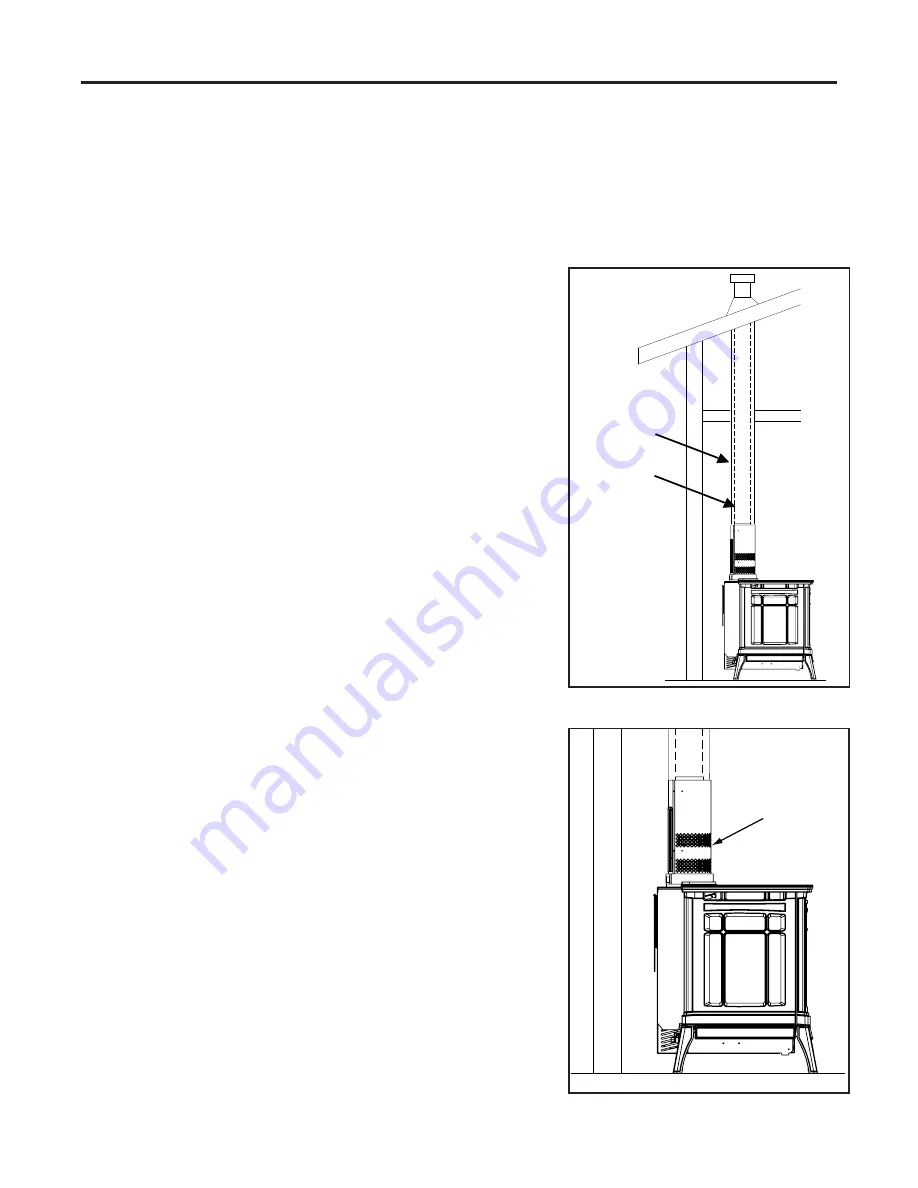
29
28
It is strongly recommended to install an approved chimney liner in an existing brick chimney. This will
maximize the potential draft of the chimney and lessen the effects of slow chimney start-up.
VENTING OF A FIREPLACE FITTED WITH THE DRAFTHOOD ADAPTOR:
Note:
Please refer to the chimney manufacturer’s installation instructions prior to commencing the
installation.
This unit may be vented to an existing masonry chimney, or where no masonry chimney is
available, an approved “B-vent” chimney, or any other approved constructed chimney/vent system (see
Figure 35). In either case, the fireplace must be connected to the chimney/vent using a 4” (10 cm) single
wall flexible venting.
Figure 35: B-Vent Setup
4" (10cm)
vent
6" (15cm)
optional
decorative
cover
Check vent draft
at the top row of
opening.
Figure 36: Draft test place.
When an existing masonry chimney is utilized for the venting, it is
required the drafthood be connected to an approved 4” (10 cm)
diameter flexible flue liner running the full height of the chimney.
In many jurisdictions this flue liner may be mandatory. A minimum
of 6” (15 cm) must be maintained between the venting and any
combustibles when using 4” (10 cm) single wall flexible venting.
Venting Restrictions:
The vent lengths below are measured
from the floor to the top of the flex venting and cannot run in the
horizontal dimension.
-
Minimum: 10 ft (3.05m)
- Maximum: 30 ft (9.14m)
SPILLAGE TEST:
A spillage test must be performed prior to leaving the installed
fireplace with the customer. Perform this test in the following
manner:
1. Close all windows and doors in the room.
2. Start all exhaust fans in the house and the furnace blower.
3. Light the fireplace and set to maximum flame adjustment.
4. After a minimum of 10 minutes operation, test the chimney draft
with a smoke match at the top row of the pattern to confirm that
there is adequate draft or ‘pull’ at the openings around the body
of the Drafthood Adaptor, as shown in Figure 36.
AUTOMATIC SAFETY SHUT DOWN:
If the spill switch is activated and shuts off the main burner the
following procedure should be followed.
• Is the pilot flame still on?
If not, the reason for the fireplace
shut down is not the spill switch.
• Turn off the pilot flame and turn off all controls. Let fireplace to
cool down.
• Check for blockages or restrictions in the flue and venting
components.
• Restart the fireplace and check for vent draft as described earlier.
• Operate the fireplace in a normal manner.
• If the main burner shuts down again after a period of operation,
turn off the fireplace and contact your service technician.
Initial Installation
















































